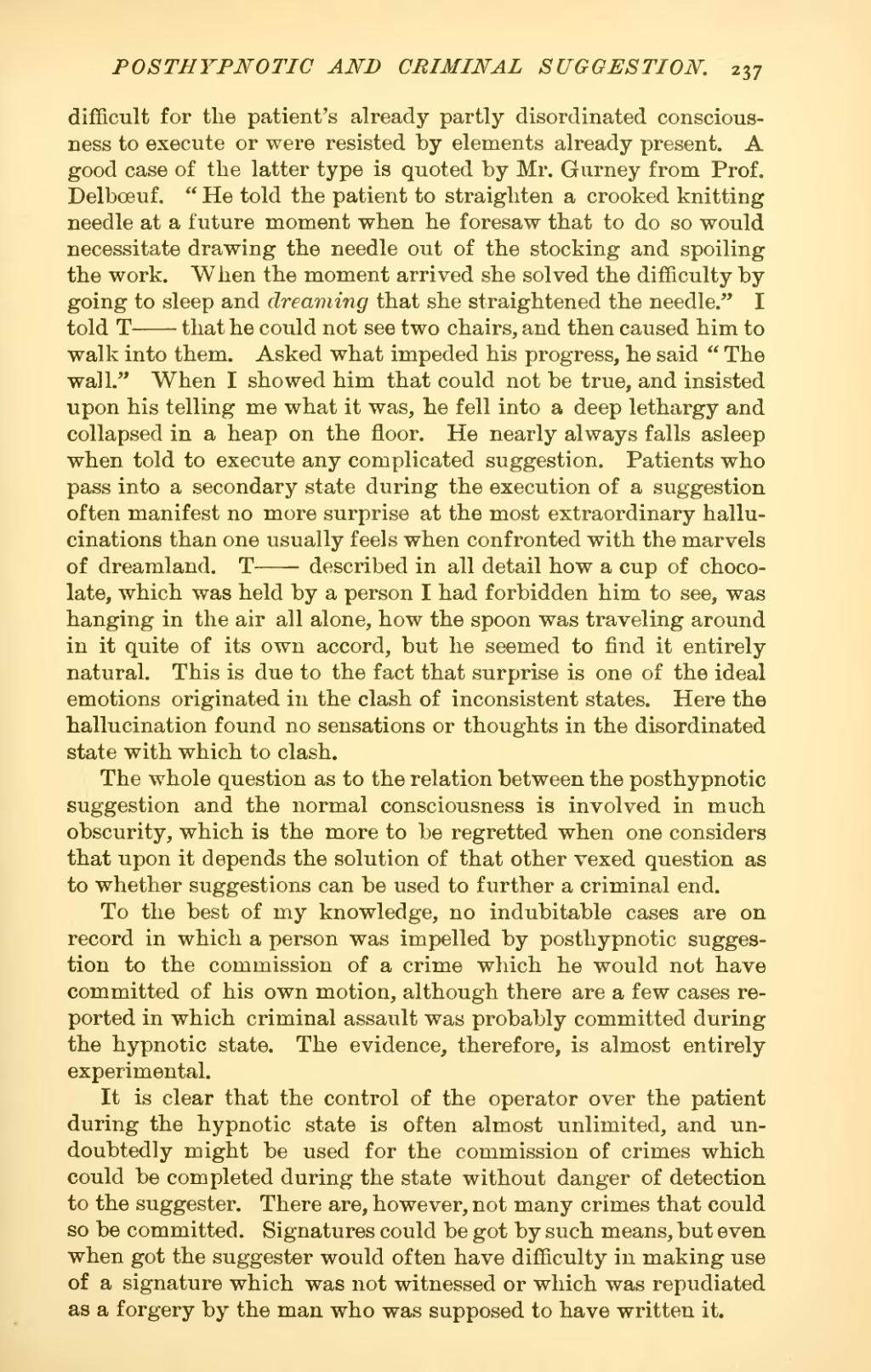difficult for the patient's already partly disordinated consciousness to execute or were resisted by elements already present. A good case of the latter type is quoted by Mr. Gurney from Prof. Delbœuf. "He told the patient to straighten a crooked knitting needle at a future moment when he foresaw that to do so would necessitate drawing the needle out of the stocking and spoiling the work. When the moment arrived she solved the difficulty by going to sleep and dreaming that she straightened the needle." I told T that he could not see two chairs, and then caused him to walk into them. Asked what impeded his progress, he said "The wall." When I showed him that could not be true, and insisted upon his telling me what it was, he fell into a deep lethargy and collapsed in a heap on the floor. He nearly always falls asleep when told to execute any complicated suggestion. Patients who pass into a secondary state during the execution of a suggestion often manifest no more surprise at the most extraordinary hallucinations than one usually feels when confronted with the marvels of dreamland. T described in all detail how a cup of chocolate, which was held by a person I had forbidden him to see, was hanging in the air all alone, how the spoon was traveling around in it quite of its own accord, but he seemed to find it entirely natural. This is due to the fact that surprise is one of the ideal emotions originated in the clash of inconsistent states. Here the hallucination found no sensations or thoughts in the disordinated state with which to clash.
The whole question as to the relation between the posthypnotic suggestion and the normal consciousness is involved in much obscurity, which is the more to be regretted when one considers that upon it depends the solution of that other vexed question as to whether suggestions can be used to further a criminal end.
To the best of my knowledge, no indubitable cases are on record in which a person was impelled by posthypnotic suggestion to the commission of a crime which he would not have committed of his own motion, although there are a few cases reported in which criminal assault was probably committed during the hypnotic state. The evidence, therefore, is almost entirely experimental.
It is clear that the control of the operator over the patient during the hypnotic state is often almost unlimited, and undoubtedly might be used for the commission of crimes which could be completed during the state without danger of detection to the suggester. There are, however, not many crimes that could so be committed. Signatures could be got by such means, but even when got the suggester would often have difficulty in making use of a signature which was not witnessed or which was repudiated as a forgery by the man who was supposed to have written it.
